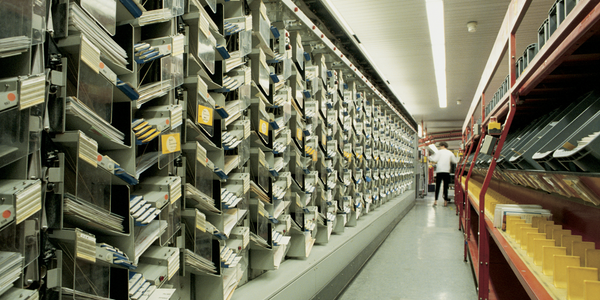Technology Category
- Analytics & Modeling - Real Time Analytics
- Platform as a Service (PaaS) - Application Development Platforms
Use Cases
- Real-Time Location System (RTLS)
- Time Sensitive Networking
About The Customer
Gamigo is one of Germany’s leading online gaming groups, offering a comprehensive global gaming platform incorporating more than 30 online and 500 casual games. The company primarily focuses on Massively Multiplayer Online (MMO) games such as Desert Operations. Gamigo is constantly expanding its portfolio to attract new players and keep current players interested with something new every time. The company has a global user base who opt-in to receive notifications about game updates and status changes.
The Challenge
Gamigo, a leading online gaming group in Germany, faced a challenge in increasing player engagement. The company used to send email notifications to its global users about game updates and status changes. However, these messages were often missed as players did not check their inboxes frequently. This resulted in a delay in players' reaction time to the changes and updates happening in the game, leading to complaints to Gamigo’s support team. Gamigo was in need of a communication channel that would keep gamers consistently informed and engaged, even when they were offline.
The Solution
To address this challenge, Gamigo decided to use SMS notifications through Infobip’s platform to deliver real-time updates to players. Given the global reach of their gamer community, Gamigo found value in Infobip’s global reach and reliable network. Gamigo now delivers daily SMS alerts about in-game changes that may affect a player’s results or position, such as incoming attacks or character changes. These messages are triggered by players’ behavior and are delivered instantly to their mobile phones in real time, reaching them when they are both online and offline. The easy deployment of Infobip’s solution ensured there were no disruptions to the overall business and gaming experience.
Operational Impact
Quantitative Benefit

Case Study missing?
Start adding your own!
Register with your work email and create a new case study profile for your business.
Related Case Studies.

Case Study
Leading Tools Manufacturer Transforms Operations with IoT
Stanley Black & Decker required transparency of real-time overall equipment effectiveness and line productivity to reduce production line change over time.The goal was to to improve production to schedule, reduce actual labor costs and understanding the effects of shift changes and resource shifts from line to line.

Case Study
Jaguar Land Rover Speeds Order-to-Cash Cycle
At Jaguar Land Rover, vehicles physically move around the facility for testing, configuration setting, rework and rectification, leading to a longer search time to get each vehicle to its next process facility. The main goal is to minimize the vehicles' dwell time between end of line and the delivery chain which was previously a manually intensive process. Jaguar Land Rover's goal was to build on the success of an earlier RFID project and improve the efficiency of delivering vehicles to meet dealer orders.

Case Study
Improve Postal Mail and Package Delivery Company Efficiency and Service
Postal mail and package delivery company wanted to replace legacy yard management system, increase inbound and outbound yard velocity, improve priority parcel delivery time and accuracy, reduce workload and overtime, reduce driver detention and measure performance and utilization of yard resources.

Case Study
Hospital Management Solution
The Oncology Diagnosis and Treatment Center of Brasov wanted to give patients as much freedom to roam as possible, while at the same time ensuring optimal patient safety and security. The centre was in need of an adequate wireless voice communication and messaging solution that would give patients the confi dence that medical staff is always on call, and reduce stress levels of nurses and doctors when called in case of urgent need.
Case Study
Worker Tracking & Safety Monitoring in Construction
One of the main challenges facing the technology was to create a network within underground tunnels and another was to provide products that can withstand harsh working environment. The team used amplifiers to enhance bandwidth and Litum produced IP67-rated hardware that is durable for harsh working conditions.








